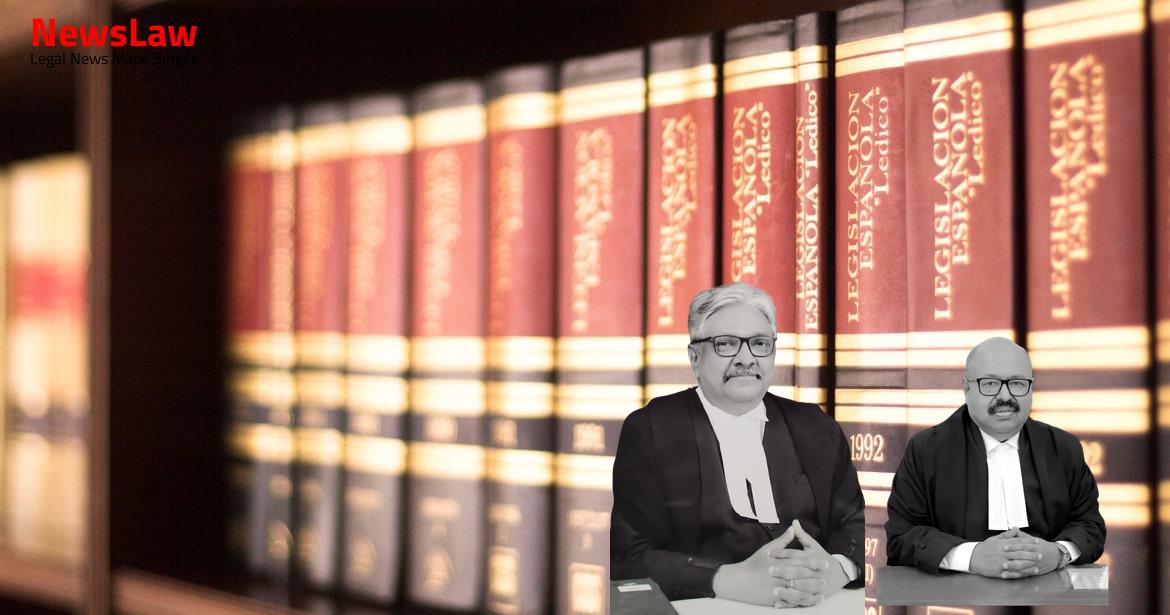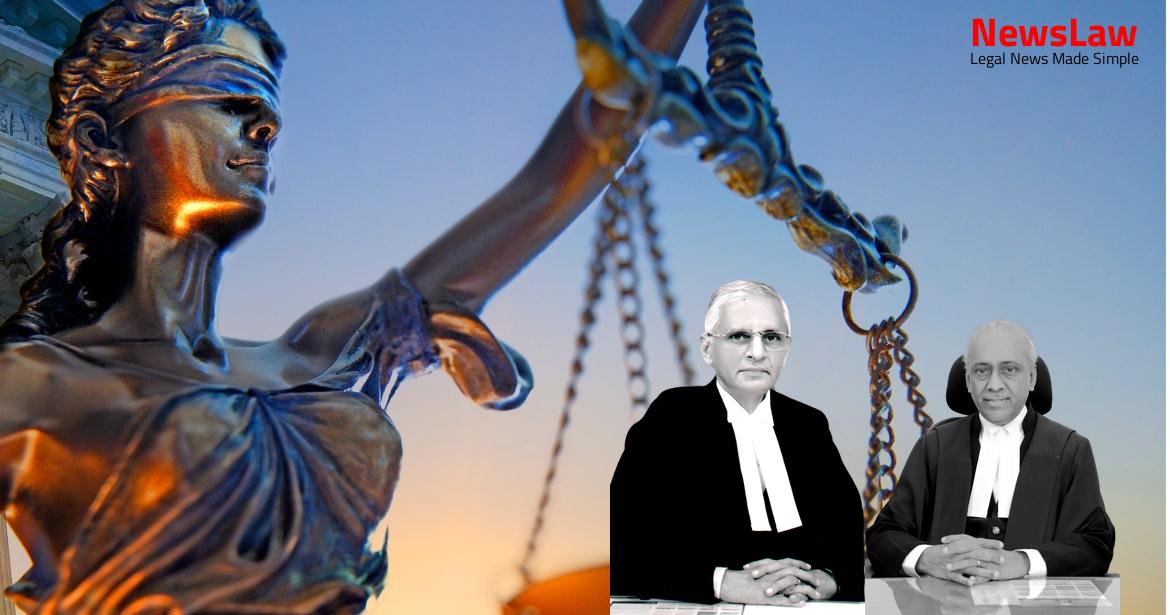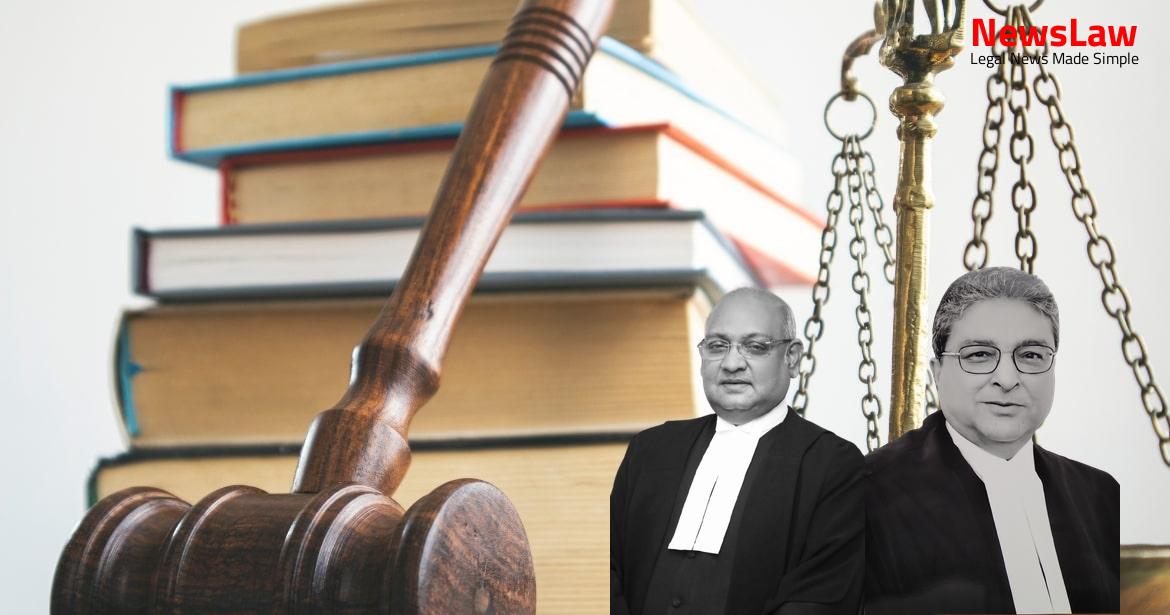In a notable legal case, the court’s thorough analysis focused on the appellate Court’s shortcomings in considering the key arguments and contentions raised by the appellants. The decision to remand the case for further proceedings highlights the importance of proper adjudication in legal matters.
Facts
- The trial court has granted the plaintiff an opportunity to have her grievance investigated by the first Appellate Court, which is expected to reappreciate the evidence.
- The plaintiff in this case, who was the wife of the uncle of the first defendant, sought a declaration of title in the property described in Schedule B.
- The prayer sought in the suit includes a decree for declaration of title, a permanent injunction against the defendants, restitution of possession if dispossessed, costs of the court, and any other relief in law or equity.
- The Suit was filed in 1999, and both the original plaintiff and the first defendant have passed away.
- Evidence was presented by both parties in the case.
- The trial court assumed that the plaintiff was a pardahnashin lady
- The character of the document was not brought to the notice of the plaintiff
Also Read: Legal Analysis of Assignment and Ratification in Property Law
Arguments
- Learned counsel for the appellants highlighted that the case of the appellants was not considered by the appellate Court.
- The appellate Court failed to address the specific arguments and contentions raised by the appellants.
- This lack of consideration by the appellate Court is a key point that needs to be addressed.
Also Read: Interpretation of Custody in Contempt of Court Case
Analysis
- The first Appellate Court did not discharge its duties properly in this case.
- The trial Court’s findings on the void gift deeds were upheld by the appellate Court.
- The High Court found the trial Court’s judgment detailed and correct.
- The appellants failed to show any perversity in the impugned judgments.
- The High Court’s consideration relied on the appellate Court’s approval of trial Court findings.
- Remand to the first appellate Court was warranted due to its failure to discharge duties.
- The burden of proof was found to be appropriately handled by the trial Court.
- The appeal is likely to be dismissed.
- The judgment and decree passed by the court below is affirmed.
- The appeal is ordered to be dismissed on contest without cost.
- A x-rox copy of the judgment is to be sent to the Lower Court soon.
- Privy Council’s view in Mst. Kharbuja Kuer v. Jangbahadur Rai was followed regarding a pardahnashin lady witness.
- The plaintiff claimed executing gift deeds under the impression of the executed power of attorney.
- There were other pieces of evidence presented to the Court.
- In the interest of justice, a remand to the first appellate Court was deemed necessary.
- Impugned judgments have been set aside as a result.
Also Read: NGT Jurisdiction and High Courts’ Role
Decision
- The case is remanded back to the first appellate Court for further proceedings on T.A. No. 18/2010
- The appellate Court is directed to dispose of the appeal promptly, preferably within six months from the date of receiving the judgment
- The principles governing the appeal do not require reiteration as they are well settled
- The Court has not made any pronouncement on the merits of either party’s case
- The appeals have been allowed
Case Title: NEMAI CHANDRA DEY (DEAD) THR. LRS. Vs. PRASANTA CHANDRA DEAD THR. LRS. (2022 INSC 433)
Case Number: C.A. No.-014699-014701 / 2015



